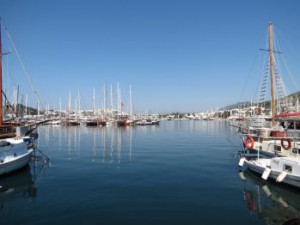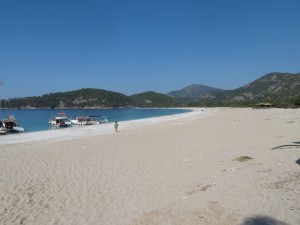Turkey Practical Information
Currency
Turkey’s currency is the Turkish Lira. Major Credit cards are widely accepted and ATM machines can be found in the main towns. In smaller areas it is advisable to have some cash with you. For hints and tips on currency exchange please click here.
Do’s and Don’ts
The Turkish people are generally very friendly and polite and most visitors will find them helpful. Crime, particularly in tourist areas, is generally very low although it is always good practice to be cautious and use common sense in taking care of your personal possessions and money. When entering a religious building shoulders, knees and midriffs are expected to be covered.
Phones
Turkey has a large mobile network so your mobile phone should work (check with your supplier first). There are a limited number of public payphones which accept either a credit card or a TT Card (Türk Telekom prepaid phone card) which can be bought from most shops, post offices, kiosks and newsstands.
Electricity
220/240 AC volts with Euro type plugs. For other plug types an adaptor will be required.
Health
It is advisable to not drink the tap water. Bottled mineral water is widely available and inexpensive.
Religion
98% of Turkey is Muslin.
Language
Main language is Turkish. Though English is widely spoken in tourist areas, particularly by the younger generations
Local Time
Turkey is 2 hours ahead of the UK
Visas and Passports
All nationalities require a visa to enter Turkey. The visa can be applied for here and for the majority of nationalities they are instantly approved. Visa regulations are subject to change so ALWAYS check with your nearest Turkish embassy or airline for latest information. Entry into Turkey requires a passport which is valid for at least three months beyond the length of your stay.
Food and Drink
Turkish cuisine is largely the heritage of Ottoman cuisine, which can be described as a fusion and refinement of Central Asian, Caucasian, Middle Eastern, Mediterranean and Balkan cuisines. Turkish cuisine varies across the country, though the food is fairly simple in its’ preparation and presentation. In the western parts where olive trees grow abundantly, olive oil is the major type of oil used for cooking. The cuisines of the Aegean and Mediterranean coasts are rich in vegetables, herbs, fish and meat. Other common local dishes are koftes and a wider availability of vegetables stew (türlü), eggplant, stuffed dolmas and fish. A plate of Meze is very popular throughout the country. Western food is available as most towns have restaurants that cater for all day breakfasts, burger, chips, pizza etc. Turkish love coffee and plenty of cafes can be found from which to sip this delicious drink whilst watching the world go by. Turkey is an established wine region, producing excellent wines. It also has a few breweries and they produce Raki. Most of these drinks can be sampled at most restaurants and bars.

















